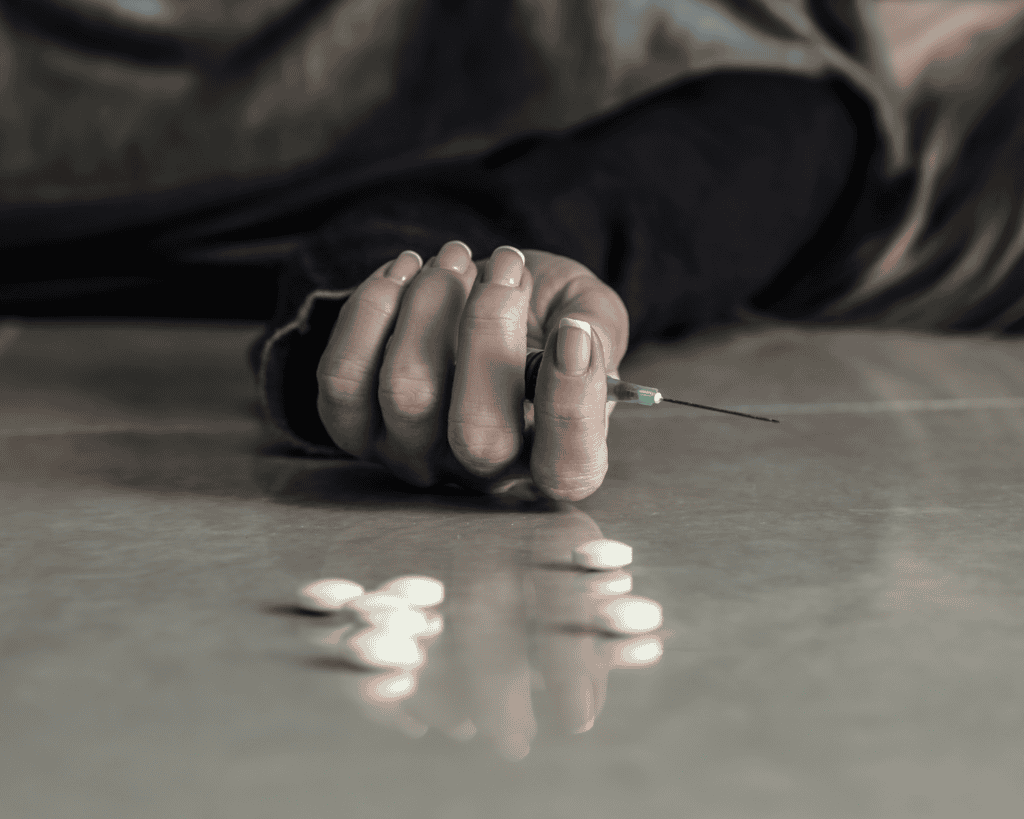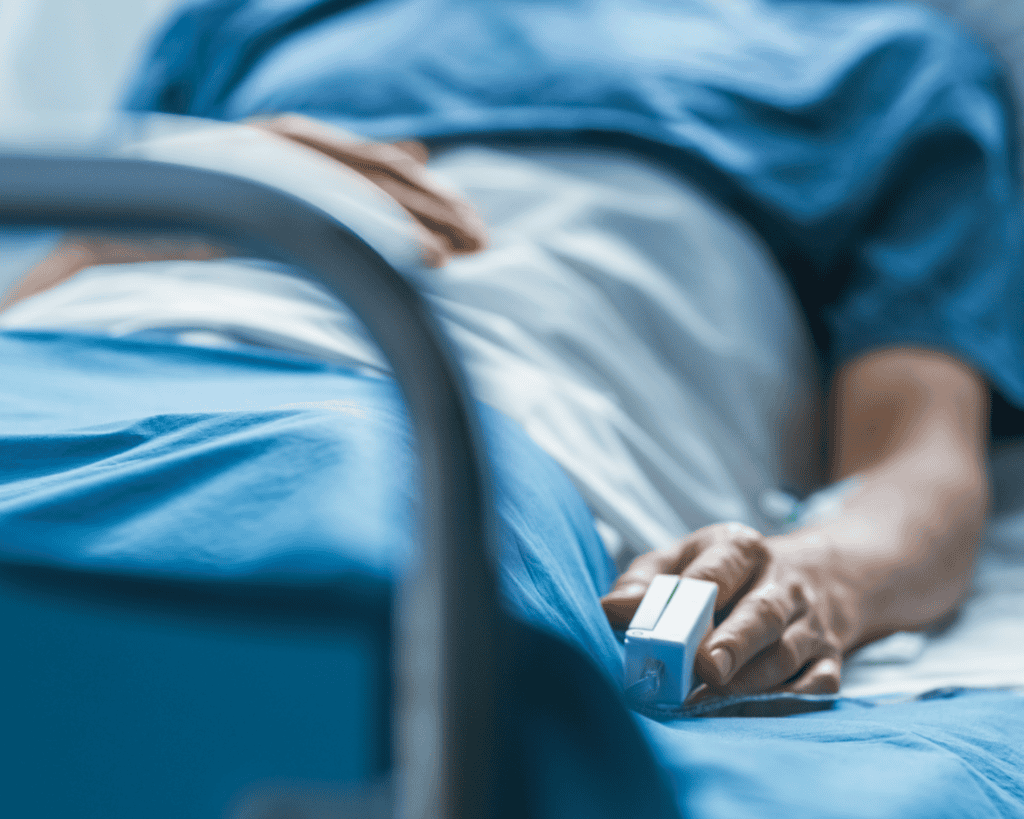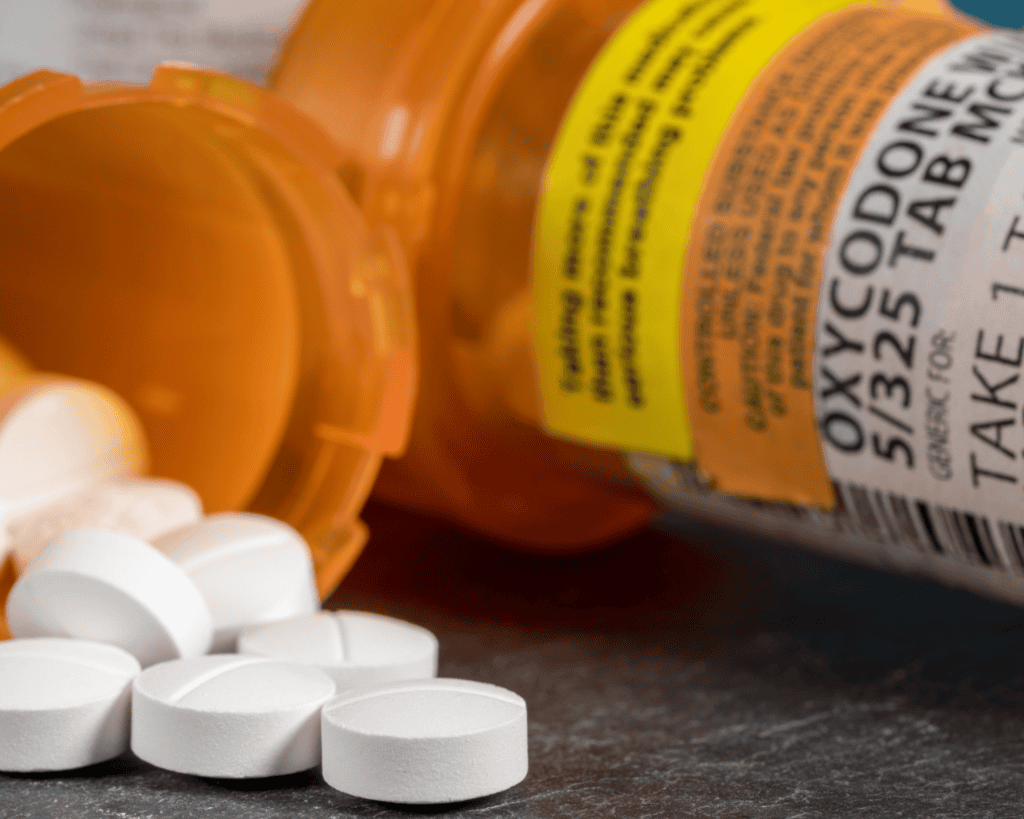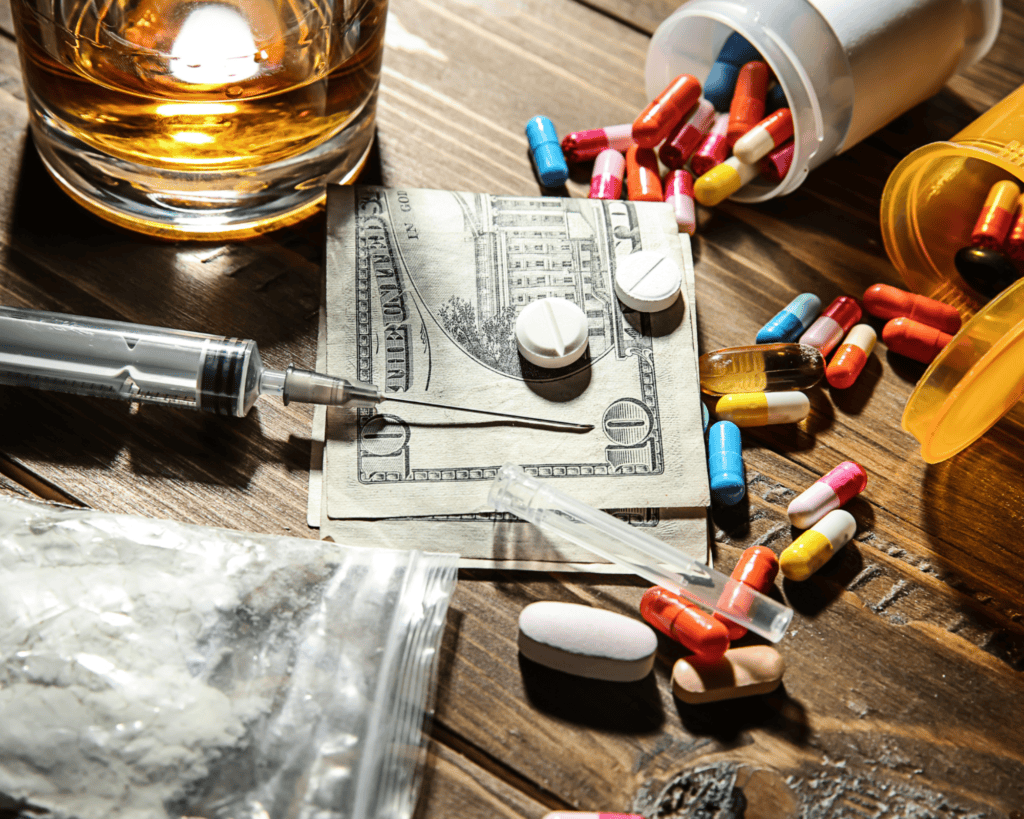What Is an Overdose?
An overdose occurs when a person takes a toxic amount of a substance, exceeding the body’s ability to process and eliminate it safely. This toxic overload disrupts normal bodily functions, often resulting in severe physical and mental effects. Depending on the substance and amount, an overdose can lead to respiratory depression, heart complications, or permanent brain damage. In the most severe cases, it can result in death.
Overdoses are not limited to illicit drugs. They frequently occur with prescription opioids, alcohol, or a combination of substances. Combining drugs, such as opioids with alcohol, can amplify their effects and significantly increase the risk of a life-threatening overdose. Recognizing the potential dangers of all substance use, whether legal or illegal, is essential for prevention and safety.
What Happens When You Overdose?
The effects and symptoms of an overdose depend on the substance involved but typically include:
Respiratory depression: Opioids and other depressants can slow or stop a person’s breathing entirely, leading to a life-threatening overdose.
Loss of consciousness: Many people experiencing symptoms of an opioid overdose become unresponsive or slip into a coma.
Heart rate abnormalities: Stimulants can cause dangerously high heart rates, while depressants may lead to a dangerously slow heartbeat.
Nausea and vomiting: Overdoses often result in vomiting, which can lead to dehydration or choking if the person experiencing it is unconscious.
Seizures: Some substances can trigger seizures, increasing the risk of injury and complications.
Mental confusion: Substances affecting the brain can cause disorientation, paranoia, or severe agitation.

Recognizing Overdose Symptoms
Being able to identify the risk of overdose and symptoms is crucial for saving lives. Signs to watch for include:
- Slow or irregular breathing
- Cold or clammy skin
- Dilated or pinpoint pupils
- Limp body or blue-tinted fingernails and lips
- Slurred speech and extreme drowsiness
- Seizures or unconsciousness

Opioid Overdose and Administering Naloxone
Opioid overdoses are particularly dangerous due to their ability to cause respiratory depression, which can quickly become life-threatening. Most opioid overdoses can be reversed with naloxone, a life-saving medication that works by restoring normal breathing.
Administering naloxone as a nasal spray or injection can buy critical time for emergency services to arrive and provide further medical care. Prompt action in the event of an opioid overdose is essential for preventing long-term damage or loss of life.
What to Do in a Medical Emergency
If you suspect someone is overdosing, act immediately:
- Call 911: Provide details about the suspected substance if possible.
- Administer naloxone: If it’s an opioid overdose, naloxone can potentially save their life.
- Position the person safely: Place them in the recovery position (on their side) to prevent choking if they vomit.
- Perform rescue breathing: If the person has stopped breathing or has inadequate respirations, perform rescue breathing or CPR if trained.
- Stay with them: Monitor their breathing and heart rate until medical professionals arrive.

Long-Term Consequences of Overdoses
Surviving an overdose is often just the beginning of a difficult journey. While immediate medical attention can save a life, the long-term consequences of an overdose can leave a lasting impact on a person’s physical and mental health. These challenges highlight the importance of early intervention, comprehensive treatment, and ongoing support to help individuals rebuild their lives.
Permanent Brain Damage
Prolonged oxygen deprivation during an overdose can cause serious, irreversible damage to the brain. This can impair memory, slow cognitive processing, and affect motor functions, making everyday tasks more challenging.
Depending on the severity of the overdose, individuals may struggle with concentration, decision-making, or even basic physical coordination for the rest of their lives.
Chronic Health Issues
The strain that an overdose places on the body can lead to long-term health problems. For example, alcohol poisoning or an opioid overdose can severely damage the liver and kidneys, while stimulants may result in chronic heart conditions or high blood pressure.
Repeated overdoses can exacerbate these issues, leading to ongoing pain, reduced mobility, or even the need for lifelong medical care.
Mental Health Challenges
The psychological impact of surviving a near-fatal overdose can be profound. Many survivors face heightened anxiety, depression, or even post-traumatic stress disorder (PTSD) as they grapple with the trauma of their experience. Additionally, the stigma surrounding substance use and overdoses can intensify feelings of shame or isolation, further complicating recovery.
Addressing these long-term effects requires a holistic approach that includes medical care, therapeutic support, and education about healthy coping strategies.
At our San Diego drug and alcohol rehab center, we provide comprehensive treatment to help individuals manage the physical and emotional aftermath of an overdose, empowering them to take meaningful steps toward recovery and a healthier future.

Opioid Overdoses and Prescription Drug Use
Opioid use disorder remains a significant contributor to opioid overdose deaths worldwide. According to the World Health Organization, synthetic opioids are among the leading causes of drug overdose deaths.
Even prescription opioids, when not taken as directed, can result in a medical emergency. Understanding how to use opioids safely and recognizing their risks is essential for preventing a life-threatening opioid overdose.

The Role of Detox in Recovery
Detoxification is often the first step after an overdose. At Right Path Rehab, our medically supervised detox programs provide:
- 24/7 medical support to manage withdrawal symptoms.
- Safe environments to reduce the risk of life-threatening complications.
- Emotional and psychological care to address the mental strain of substance use.
Comprehensive Treatment Beyond Detox
Overcoming substance use requires more than detox. At Right Path Rehab, we offer programs that include:
- Therapeutic counseling
One-on-one and group sessions to identify triggers and build coping skills. - Dual diagnosis treatment
For individuals with co-occurring mental health conditions. - Relapse prevention planning
Practical tools to avoid high-risk situations. - Family therapy
Strengthening support networks and healing relationships.

Preventing Future Overdoses
Preventing future overdoses is essential for sustaining recovery and saving lives. At Right Path Rehab, we provide individuals with the tools and support needed to make safer choices and avoid high-risk situations.
Educating Clients About Prescription Opioids and Substance Misuse
At Right Path Rehab, we educate clients about the risks of prescription opioid misuse, including the dangers of opioids combined with other substances and the potential for life-threatening overdoses. This knowledge helps individuals make informed choices about their health and understand the importance of using opioids safely.
Teaching Healthy Coping Strategies
Healthy coping strategies, such as mindfulness, journaling, and relaxation techniques, help individuals manage stress and emotions without turning to drugs or alcohol. These skills provide effective alternatives for handling life’s challenges.
Encouraging Support Group Participation
Support groups and sober communities offer a vital network of encouragement and accountability. Engaging with these groups helps individuals feel connected and supported in their recovery.
By combining education, coping strategies, and community connection, Right Path Rehab helps clients build resilience and reduce the risk of future overdoses.

Reach Out to Right Path Rehab Today
An overdose can be a devastating experience, but it doesn’t have to define someone’s future. With immediate medical help, a strong recovery plan, and ongoing support, it’s possible to break free from substance use and rebuild a healthier life.
At Right Path Rehab, we’re here to guide you every step of the way. Whether you or a loved one is struggling with substance abuse or alcohol abuse or have experienced drug overdoses before, we can provide the care, resources, and encouragement needed to overcome these challenges. Contact us today to learn more about our programs and take the first step toward lasting recovery.

